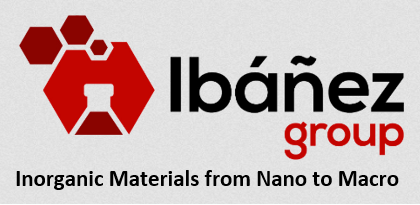 The Werner Siemens Foundation has funded our research in high-efficiency thermoelectric materials since September 2020.
Conventional methods for fabricating thermoelectric materials are based on purely inorganic compound semiconductors fabricated by solid-state synthesis. However, this method is not sufficiently controllable, so we need alternative strategies to control structural and chemical parameters at multiple dimensional levels. We intend to develop novel materials based on nanoparticles and molecular precursor-nanoparticle combinations. The basis is a computer-aided high-throughput method. This approach benefits mainly from 3 factors: (a) the incorporation of high-throughput synthesis as well as machine learning to dramatically accelerate development time; (b) the use of computational assumptions to predict the functional properties of novel thermoelectric materials; (c) new approaches to materials design that go beyond the intrinsic properties of a single solid material.
The Werner Siemens Foundation has funded our research in high-efficiency thermoelectric materials since September 2020.
Conventional methods for fabricating thermoelectric materials are based on purely inorganic compound semiconductors fabricated by solid-state synthesis. However, this method is not sufficiently controllable, so we need alternative strategies to control structural and chemical parameters at multiple dimensional levels. We intend to develop novel materials based on nanoparticles and molecular precursor-nanoparticle combinations. The basis is a computer-aided high-throughput method. This approach benefits mainly from 3 factors: (a) the incorporation of high-throughput synthesis as well as machine learning to dramatically accelerate development time; (b) the use of computational assumptions to predict the functional properties of novel thermoelectric materials; (c) new approaches to materials design that go beyond the intrinsic properties of a single solid material.
Funding
 The Werner Siemens Foundation has funded our research in high-efficiency thermoelectric materials since September 2020.
Conventional methods for fabricating thermoelectric materials are based on purely inorganic compound semiconductors fabricated by solid-state synthesis. However, this method is not sufficiently controllable, so we need alternative strategies to control structural and chemical parameters at multiple dimensional levels. We intend to develop novel materials based on nanoparticles and molecular precursor-nanoparticle combinations. The basis is a computer-aided high-throughput method. This approach benefits mainly from 3 factors: (a) the incorporation of high-throughput synthesis as well as machine learning to dramatically accelerate development time; (b) the use of computational assumptions to predict the functional properties of novel thermoelectric materials; (c) new approaches to materials design that go beyond the intrinsic properties of a single solid material.
The Werner Siemens Foundation has funded our research in high-efficiency thermoelectric materials since September 2020.
Conventional methods for fabricating thermoelectric materials are based on purely inorganic compound semiconductors fabricated by solid-state synthesis. However, this method is not sufficiently controllable, so we need alternative strategies to control structural and chemical parameters at multiple dimensional levels. We intend to develop novel materials based on nanoparticles and molecular precursor-nanoparticle combinations. The basis is a computer-aided high-throughput method. This approach benefits mainly from 3 factors: (a) the incorporation of high-throughput synthesis as well as machine learning to dramatically accelerate development time; (b) the use of computational assumptions to predict the functional properties of novel thermoelectric materials; (c) new approaches to materials design that go beyond the intrinsic properties of a single solid material.

